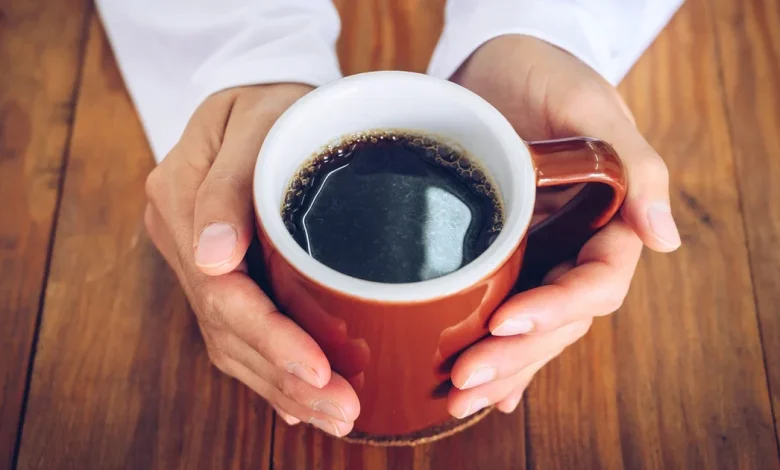Coffee may help protect against A-fib, the most common irregular heartbeat, study finds

Drinking caffeinated coffee is safe for people with atrial fibrillation and may help protect against recurrence of the disorder, a new study finds.
More than 10 million Americans live with atrial fibrillation, or A-fib, a common heart disorder that causes heart palpitations and can lead to heart failure, blood clots and stroke. Doctors have long tried to understand whether caffeine — which can increase heart rate and blood pressure — appears to trigger episodes that feel like a fluttering or thumping in the chest and cause dizziness or breathlessness.
“There is no standard advice for atrial fibrillation and caffeine,” said Dr. Gregory Marcus, a cardiologist and professor of medicine at the University of California, San Francisco, who led the DECAF (Does Eliminating Coffee Avoid Fibrillation?) study. “It is very common for me to encounter patients who have stopped drinking caffeinated coffee only because their physician has told them to do so because of their atrial fibrillation.”
The results of the DECAF study, a four-year clinical trial examining the effects of drinking coffee in people with a history of irregular heart rhythm that had either resolved or been treated, were presented Sunday at the annual American Heart Association conference in New Orleans and published in JAMA. Marcus is an associate editor of JAMA.
The researchers recruited 200 older adults in Australia, Canada and the United States who were regular coffee drinkers at some point in the last five years. The average age was 70 and one-third were women.
Over six months, the participants were randomized to two groups: those who cut out caffeine, and those who had at least one cup every day. Everyone self-reported their coffee and caffeinated beverage consumption during telehealth or video check-ins that occurred one, three and six months into the trial.
Using data from electrocardiograms, or ECGs, taken in a doctor’s office, wearable heart monitors and implantable cardiac devices, Marcus and his team determined if and when people in each group had their first recurrent episode of A-fib. They included episodes of atrial flutter, a related condition that also causes abnormal contractions in the upper chambers of the heart.
Both groups had about the same alcohol habits. Not everyone was a coffee drinker when the study began, but the number of daily coffee drinkers in each group was similar.
Before the study began, 60% of people in the coffee-drinking group and 65% in the no-coffee group said that coffee had never triggered an A-fib episode.
During the six-month study, 111 people, or 56%, had a recurrent episode of atrial flutter. People in the coffee drinking group were less likely to have a recurrence — 47% compared to 64% of people in the no-coffee group — and went a longer period of time before they had their first episode.
(About a third of people in the no-coffee group did admit to drinking at least a cup during the study, while the rest didn’t consume any.)
A cup a day ‘perfectly safe’
It’s the latest study to show coffee may lower risks of heart problems and other metabolic disease.
Previous observational research has suggested that people who drank coffee had less of a risk of A-fib, but the new trial shows a cause-and-effect relationship, said Marcus.
“I was somewhat surprised at the magnitude of how protective caffeinated coffee does seem to be to prevent atrial fibrillation,” Marcus said.
Dr. Johanna Contreras, a cardiologist at Mount Sinai Fuster Heart Hospital in New York, said the most significant takeaway from the study was that drinking a cup of coffee a day seems to be perfectly safe for people with A-fib, rather than that coffee is protective.
“There’s not a hard-and-fast rule. Not everyone has the same reaction to caffeine,” said Contreras, who was not involved with the trial.
There are notable limitations in the study, including the effects of caffeinated beverages other than coffee. The trial didn’t track differences in exercise habits or diet. People who drink coffee may also be exercising more, Marcus suggested.
The study found that drinking just one cup of coffee per day appeared to have a protective effect, and while some people in the study did drink more than that, it’s unclear if more than a cup of coffee per day could have any effect on A-fib recurrence.
Moderation is key, Contreras said.
“If people are having six or seven cups of coffee, and then Red Bulls and Celsius, that’s different,” she said.
It’s unclear why drinking coffee was linked with a lower risk of irregular heartbeat recurrence. It’s possible that an anti-inflammatory compound in coffee, not specifically caffeine, could have reduced recurrence in the coffee-drinking group, Marcus said.
If caffeine is at play, it is possible that stimulating the body’s adrenaline response with caffeine could help stave off A-fib. People often report episodes when they are relaxed, such as while sleeping or after a big meal, when adrenaline is low, Marcus said, when the “rest and digest” part of the nervous system is activated.
Also, the trial included only people who were not currently experiencing episodes of A-fib. The findings may not translate to people with the unmanaged disorder.
“If someone was in the midst of A-fib, caffeine could certainly increase the pulse rate during that episode and therefore lead to worse symptoms,” he said.
For people who are already regular coffee drinkers, “this shows you can have a cup of coffee in the morning and be OK if you have A-fib,” Contreras said.





